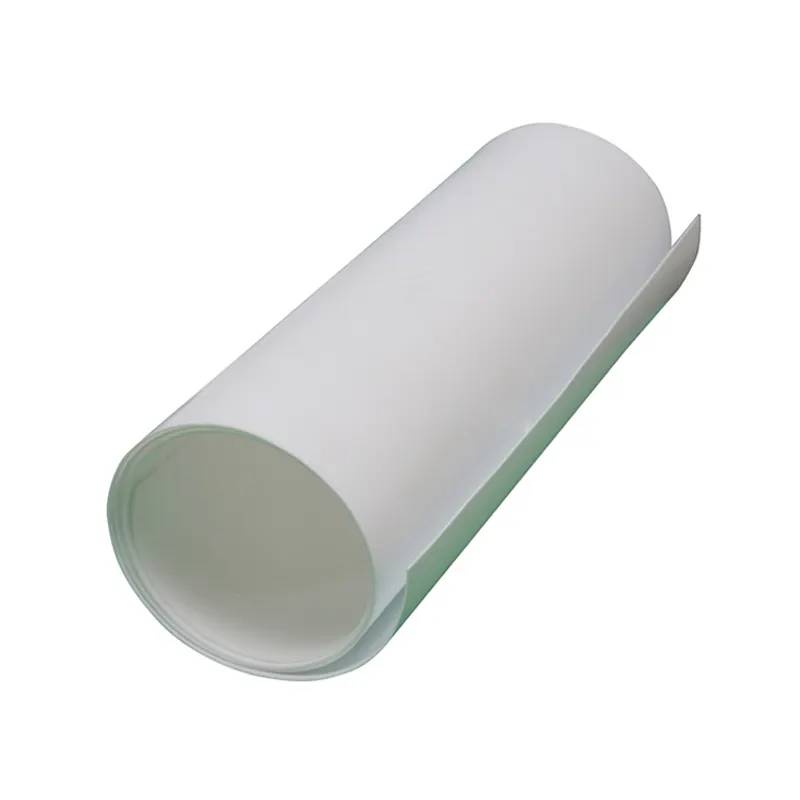In an age of rapid industrial development, innovative materials such as PTFE, fluoroplastics, and engineering plastics are shaping the course of multiple industries. These products exhibit extraordinary properties that make them troublesome for many applications. Let’s take a deeper look at each of these elements individually and understand them more broadly.
PTFE Injection Moding Part has been a game-changer in the plastic business. PTFE, or what you might call polytetrafluoroethylene, is this high-end plastic that's really good at handling hot temperatures, doesn't react much with other stuff, and is an ace at not letting electricity run through it. Because injection molding is so good at making complex shapes really accurately, it's the go-to for creating PTFE parts. These parts are big in the car industry, flying things, and health-related gear.
Molding PTFE with injection methods is a pretty fancy process that turns PTFE resin into intricate shapes and bits with amazing detail. Not like the old way of cutting stuff away, which can waste material and not let you be as creative with shapes, injection molding lets you make complicated designs with super tight precision. This technique is super useful in jobs that need things to be airtight, really pure, or to stand up to harsh chemicals. That’s why you’ll find it in high-tech manufacturing for electronics, making medicines, and building spacecraft and planes.

Fluoroplastics Fitting are a big deal across all sorts of jobs because of their knack for handling heat, nasty weather, chemicals, and electricity. These tough qualities make them perfect for rough work spots. They show up in places that need gear to perform really well even when things get tough, like in making chemicals, building cars, and the aerospace world. Their talent for working in touchy situations makes them a solid pick for folks who know their stuff in the industry.
Fluoroplastics Fitting, like the ones made from PTFE and PVDF, are big players when it comes to keeping connections tight and leak-free. These heavy-duty plastics are built to handle the tough stuff: really hot or cold temperatures, serious pressure, and harsh substances. They're crucial for keeping things running smoothly in chemical plants, labs, and the places where food and drinks are made.
Chemical Resistance: Unmatched resistance to a wide range of chemicals, acids, and solvents ensures compatibility with a wide range of process fluids.
Easy Installation and Maintenance: Lightweight and easy to operate, it simplifies system assembly and minimizes downtime during maintenance or modifications.
Hygienic Properties: Smooth, non-porous surfaces facilitate cleaning and disinfection, making them ideal for sanitary applications.
Engineering Plastic Products are super important to all the stuff we make today. They're special types of materials picked because they're really good at what they do. These plastics can take the heat, last a long time, and do a lot more than your typical plastic. They’re a big part of machine and car parts, health gear, and other high-level industry stuff.
Then you've got Fluoroplastics Fitting, and that includes the ones made from PTFE and PVDF, which are top-notch plastics. They're really important for making sure fluids don't leak out and everything keeps running smoothly. These fittings can stand up to crazy temperatures, a lot of pressure, and stuff that would eat away other materials, which makes them super important in places like chemical plants, labs, and where food and drinks are made.
Chemical resistance: Unmatched resistance to a wide range of chemicals, acids, and solvents ensures compatibility with a wide range of process fluids.
Easy installation and maintenance: lightweight and easy to operate, simplify system assembly, and minimize downtime during maintenance or modifications.
Aside from PTFE pieces and fluoroplastic connectors, the whole group of engineered plastics has really changed how things are made by giving us other options besides metal for all sorts of uses. Take cars, for instance. These plastics help make parts lighter, which can lead to cars using less gas. Then there's stuff like cases for electronics that need to be good insulators and handle heat well. Engineered plastics are really testing the limits of how we understand and use materials.
Sustainability focus: development of bio-based and recyclable plastics that meet environmental standards without compromising performance.
Integration of nanotechnology: enhanced performance through the addition of nanomaterials, making materials stronger, lighter, and smarter.
Smart materials: integration of sensors and responsive materials that enable components to have self-diagnostic and adaptive capabilities. Hygienic properties: Smooth, non-porous surfaces facilitate cleaning and disinfection, making them ideal for sanitary applications.
Wrapping it all up, PTFE-molded parts, fluoroplastic bits, and all those smartly designed plastic items are getting a lot of love in different industries because they just work so well. With new smart ideas popping up all the time, we’re going to see these products become an even bigger part of everyday life. These advances are jazzing up how well things work and opening doors for cool new changes in the industry and smarter ways to get things done. You can really see how these fields are keeping pace with what's new and using fresh tech to head towards a future that works more smoothly and takes better care of our planet.